By Shkëlqim ABAZI
Part thirteen
SPAC
The Grave of the Living
Tirana, 2018
(My memories and those of others)
Memorie.al / Now in my old age, I feel it is my duty to tell my truth, just as I lived it. To speak of the modest men who never boasted of their deeds and of others whose mouths the regime sealed and buried them in nameless pits. In no case do I take it upon myself to usurp the monopoly of truth or to claim laurels for an event where I was a random witness, even though I tried with all my heart to help my friends, who politely and kindly avoided me: “Brother, open your eyes… don’t get involved… you only have two months and a little left!” A worry that clung to me like an amulet, from the morning of May 21, 22, and 23, 1974, and even followed me in the following months until I was released. Nevertheless, everything I saw and heard those three days, I would not want to take to the grave.
Continued from the previous issue
If actors go through commission after commission and test after test to earn the right to act in scientific-artistic expeditions in cosmic space and feel favored by fate when prestigious cultural-scientific authorities approve and endorse them; with us, it was radically different, because they took us violently, they beat us all over with clubs, tied us with handcuffs, and sent us before a commission of three puppets who, ironically, they called a judicial body. The three puppets gave you the visa for further work, meaning they approved you as an underground ‘astronaut’ or not, which, to be honest, not only gave you a rough-and-ready sentence with long terms of up to twenty-five, or even forty-two years like Sami Dangëllia, but often provided you with a visa for the next world.
After closing this annoying knot, they tied us with handcuffs and a thick chain to ensure a secure long journey, loaded us onto the “cosmic ship” which, to frighten the fools, they named “prison-bus,” and took us to Spaç, the most prominent base of the Albanian prison-city (burgograd), where they prepared the underground “astronauts.” There, without further ado, you earned the right to explore the subterranean orbit, Hades, even without a license or minimal theoretical-practical preparation, and without any training at all. This is how they turned us into “astronauts” under the ground.
The Routine of a Day (Old Regulations, New Police)
In the Spaç camp, the conditions did not change much; the Reps regulations were in effect, the same criminal atrocities, and the same snake hisses, even more bitter, the same soldiers armed to the teeth, who uttered the call “stop or I will shoot” only after firing a couple of volleys; they were the same muzzled dogs, if not the most trained ones from the dog school, and the same police officers, with the same clothes and the same names.
As soon as I mentioned the police officers, I was reminded of the outline of an etymological study by Professor Agim Musta, which began as a short essay, focused mainly on the names and the characters intertwined with them.
When I first encountered it, I took it for the professor’s bias against the Northern police officers, this community that was reduced to thirteen proper names, where they often proved harsher than their superiors. But later I conceded to the professor; no matter how much I tried to delve into this topic, I could not list more than thirty male names and as many female names.
Certainly, this superficial study, not supported by scientific evidence but the first of its kind, serves as a guide for new researchers and acts as a standard for comprehensive studies.
Let’s look at the statistics.
A total of 57 police officers, 16 officers, and several dozen civilians had stepped inside the enclosure. Since we are talking about the military personnel, I will not refer to the civilians, nor will I include the conscripts guarding the watchtowers, but the 73 military personnel who entered and left over two years and eight months and replaced each other. 21 of these were from other districts, the rest from Mirdita. The former were in transit, they escorted the convicts from the Elbasan camp, stayed briefly, and left one by one.
Let’s get to the core.
Excluding these 21 whom the professor called guests, he examined the local personnel and found that the 52 military personnel bore only thirteen names.
Let’s refer to the list he compiled, starting with the names of the gender representatives.
In the table we find: 2 Zefs; 2 Gjetës, only one local because the other was from Lura; 2 Prengës, 2 Bardhoks; 3 Nikollës, 3 Jakës; 4 Gjins and 4 Frroks; 5 Ndues, 6 Marks, 6 Pjetërs; 7 Ndrecës and 7 Lleshës. So, thirteen names represented the 52 police officers with whom we worked, some of whom escorted us to Spaç. It was not very difficult to learn thirteen names, but the problem became complicated when it was necessary to distinguish one Llesh from another or one Pjetër from his namesake.
However, the professor had found the thread even in this tangle. With the help of convicts from that region and the police officers themselves, who, when mentioning each other, also specified the name of the village, the father, the grandfather, the great-grandfather, the great-great-grandfather, and sometimes even the tribal chief or the party secretary.
For example, when Ndrec Gjini was mentioned, they listed seven or eight adjectives to distinguish him from the other 6: Ndrec Gjin Gjet Pjetër Pashk Nikoll Marka Gjin Kthella, or the other one, Ndrec Mark Nikoll Pjetër Gjin Llesh Zef Nikoll Perlati. When you heard this string of adjectives, you expected the speakers to grind their teeth like rosary beads, but when it didn’t happen, you asked yourself: “Am I in some Arabian desert or somewhere in Brazil?!” This was so true that even the locals were embarrassed to make the distinction. I will illustrate this fact with one of the many jokes I heard in that region:
A group of Mirditors went to the market in Milot, where they started a quarrel with the horse traders. In a fit of anger, one of them fired a weapon, but thank God, the gypsy was only wounded. To clarify the circumstances of the incident, the gendarmes escorted the whole group, and when the official asked for their personal details, four gave one name and three another.
This gave the corporal a headache, but when he learned that the assassin was called differently, he calmed down and regained his composure. “Thank God he has another name, catch him quickly” and he sent the gendarmes to Mirdita.
When they asked the village elder to hand over the culprit, surprise! Fifteen people with that name gathered in the courtyard.
Caught off guard, the gendarmes carried out the order: “I want the culprit in Milot” and took the whole flock of namesakes. When they brought them to the superior at the command post, he was dumbfounded by the crowd of identical names and burst out: “Turkey was right to stay away from you; if we can’t distinguish you, what hope did they have! May you be cursed, break your necks in your own crags” and he filed the case.
The composite surnames, where a name was repeated several times, had been resolved by adding the prefix “Për” and pronouncing them: Përdeda, Përndreu, Përgjini, Përpali, Përdoda, etc.
The study continued with analogous cases, where the village or a toponym was used as a nickname.
But the flaws still did not end because it happened that ten Prengës, twenty Ndrecës, seven Gjins, twelve Lleshës, fifteen Bardhoks, were from the same village. How could you manage to distinguish someone when it was said: “For X problem, Ndrec Kthella is also aware,” when three Ndrecës were from this village, or: “For Y issue, we discussed with Bardhok Shpali,” when two of our Bardhoks were from Shpali?
Thus, the need for a new construction arose. At that time, epithets and nicknames came into use, such as the appearance of the terrain, the individual’s physical features, or those of their ancestors, for example: Gjin Bregu (Gjin the Shore), Gjin Shelgu (Gjin the Willow), Zef Mali (Zef the Mountain), Zef Kodra (Zef the Hill), Bardhok Plepi (Bardhok the Poplar), Bardhok Qarri (Bardhok the Oak), Nikoll Syziu (Nikoll the Dark-Eyed), Nikoll Qorri (Nikoll the Blind), Pjetër Miri (Pjetër the Good), Pjetër Keqi (Pjetër the Bad), Mark Mustakuqi (Mark the Red-Mustached), Mark Kryziu (Mark the Cross-Eyed), but also birds, animals, insects like Frrok Zogu (Frrok the Bird), Frrok Zhgaba (Frrok the Vulture), Llesh Korbi (Llesh the Crow), Llesh Pllumi (Llesh the Dove), Ndue Dhelpra (Ndue the Fox), Ndue Uku (Ndue the Wolf), Zef Gjikalla (Zef the Cicada), Zef Pleshti (Zef the Flea), etc.
So, the study revolved around this core.
If the list was limited to a much reduced framework of names, a diverse string of adjectives stretched out behind them. When even the locals repeated a passage several times to specify the person being talked about, imagine us who came into contact with these individuals for the first time; we needed effort to distinguish one from the other.
Therefore, out of necessity, we invented a phonetic code, which was based on the use of monosyllabic, multisyllabic, simple, compound, synonymous words, epithets, melodies, whistles, screams, shouts, interjections, phonetics of all resonances, etc., that supplemented the Morse alphabet, the field of acoustics, and not only that, but also brought innovations in etymology, sociology, psychiatry, and chiromancy. The prison psychologists managed to connect the appearance with the soul, and based on this deduction, they assigned the epithets.
Initially, Shyqyri Gruda and Xhelal Beu proved to be the most capable. Later, the new talents eclipsed the former, and in the end, no police officer was left without a nickname.
For example, to distinguish Ndrec Gjin Gjet Pjetër Pashk Nikoll Marka Gjin Kthella from Ndrec Mark Nikoll Pjetër Gjin Llesh Zef Nikoll Perlati, Shyqi baptized the first one “bu-bu,” because when he came for inspection, he would thunder “bu-bu-bu,” but he was satisfied with that, while the second one was nicknamed “fshëu-fshiu,” because he approached like a squirrel, and woe betide anyone he caught in the act; they would end up tied up on the road to “Golgotha” and then one month in the cell. Later, Xhelal Beu gave the first one the epithet “bubullima” (the Thunder) and the second one “akrepi” (the Scorpion).
The same with the Marks; one was shortened to “mus” because of his yellow mustaches, and the other to “xhi,” because he was like a giraffe; or with the three Jakus, one was named: Jak “xhahili” (Jak the Ignorant), shortened to “xha,” for his tar-black soul, the other: Jak “xhentili” (Jak the Gentle), shortened to “xhe,” for his adventurous type, and the third: Jak “xhebrahili” (Jak the Archangel Gabriel), shortened to “xheb,” because he stood over us like the Sword of Damocles.
The others did not remain without nicknames either; everyone was given a nickname according to their character, so it was not difficult for us to understand who was coming, as long as the signal was given by shouting a syllable, swearing at a bird, an animal, or by whistling once, twice, three or more times, according to our alphabet.
Thus, even in this regard, Agimi’s study remains unique, because it provided impressive definitions with economical terms.
But let’s return to the topic.
As I mentioned, the rules were the same, the police officers mostly the same, the same names were repeated, only a little more, but still the list did not exceed thirty. In this regard, Spaç could be called an extension of Reps, or vice-versa, since the latter was a satellite of the former.
The schedule of activities changed, due to shift work, and consequently the regime. Naturally, it was not about any qualitative change, they simply altered the graph of entries and exits to the work camp, the wake-up time, the distribution of food, the morning roll call, because in the afternoon everyone was forced to go out. Let’s take them in order.
First Shift – waking up was at five. Within the hour, you had to attend to personal needs, wash, get food and gulp it down, so that six o’clock would find you in line. So, you had to perform a multitude of actions in a few minutes, something that only marionettes could handle.
As soon as the line exited the gate and the brigades split, we took the uphill path to the calvary, were equipped with the material base, and disappeared into the holes for eight hours.
The cycle ended at three, one hour was lost with the shift change, as much with the tools in the warehouse, and as soon as you descended, you lined up and waited for the guards until they felt like opening the door and letting you through the inspection; only from four thirty to five could you head to the kitchen to get food. Before the hour passed, the whistles for the evening roll call began.
In winter, this ritual unfolded under the lights of the projectors, in the cold, rain, and snow, while on summer days, little time remained for personal needs.
At nine, the signal for sleep was given, and the camp fell into relative silence. I emphasize relative, because at that very hour, the third shift got up, whose preparations did not pass without noise, despite the care not to disturb their comrades.
Nine o’clock lowered the curtain on the first shift.
Second Shift: was a close copy of the first. Except for waking up later, although due to the noise across the dormitory, sleep evaporated as early as five. Before the third shift workers returned, the morning roll call was held, after which you headed to the kitchen and then you could attend to some personal work, until two, the hour that should find you lined up for work.
The shift ended at eleven, after the ritual of handing over the front, the tools, and the clothes to the warehouse, it became twelve, and from one in the morning, you could enter the camp.
One can imagine how tired, exhausted, and sleepy we were when we came to the cauldron; our legs gave out, and we couldn’t open our mouths.
From two, we lay down on the bed, but sleep had escaped to the edges of our slain dreams. Here the day ended…., the rest waited endlessly for their turn…!
Third Shift: started completely originally; the morning caught you in darkness, left you in darkness, found you in darkness!
The shift ended at seven in the morning; over an hour of wandering from warehouse to warehouse, and from eight thirty, it was your turn to enter the camp. When you headed to the kitchen to slurp the swill, you were lost in thought and flopped down on the straw without undressing, where sleep would overwhelm you.
At four, you had to get up to get food and gulp it down almost on your feet, to be ready for the evening roll call. After the roll call, you could attend to some minor need; if you could open your eyes, but usually, you lay down to gather your bones.
At nine, when the others went to sleep, you got up so that ten would find you in line.
The twenty-four-hour period started in darkness and ended in darkness. Once every three weeks, you were imprisoned in the prison within the prison!
Self-Services and Others
Personal needs mean self-services and others.
Self-services included bathing to remove the grime and filth of the mine.
Naturally, there were no showers there, but half-rusty barrels served as such, which we heated in the private kitchen and, with the help of friends, brought into the quarters. After hanging a blanket rug so as not to be seen naked, in winter we bathed in the cold, in summer in the dust.
Clothes were another chore; the fumes of the mine accompanied us to bed. So, we heated water in buckets or cauldrons and lathered them on basins, sometimes with soap, sometimes with washing soda, until our nails broke. Since we had few clothes and washed them frequently, we often wore them damp, especially on rainy days, because the clotheslines were insufficient for seven hundred souls. But not everyone acted this way.
A minority had lost interest in cleanliness, had fallen into such a state that they became a nuisance to others, because, being accustomed to the filth, they scorned anyone who tried to keep themselves clean even in conditions of misery, even mocking and labeling them: “bourgeois fuss-pots” or “crazy maniacs.”
Since they had reduced care to zero, they tried to pass on the vice to others, and when they failed with mockery, they achieved it in the worst way; they transmitted the parasites, which they harbored in abundance.
Over a hundred people slept in the dormitory. The pupulit walls had turned into nests of bedbugs, fleas, and lice, while the mattresses were packed next to each other, and parasites spread easily. The dirty minority provoked the peaceful ones and quarrels began; sometimes they resulted in fisticuffs, or even worse, with injuries.
The quarrel was extinguished after the command’s intervention, but you had to inhale the stench of disinfectants all week.
Another need was cooking in the private kitchen. Prison food was either insufficient or unpalatable. Naturally, this privilege was enjoyed by those who had aid from their families, while the others were left with the swill from the cauldron, which they would eat willingly or unwillingly.
Therefore, groups of volunteers were created to help their comrades; they combined the few foods their families brought them and ate together in groups of two or three, according to preference, region, or clique. This method of organization was a perfect solution; when one was at work, the other cooked in his spare time for himself and for his friend, so that when the latter returned exhausted from work, he found it ready.
I ate with the two Tomors. Balliu took care of the kitchen and cooked for the three of us. Sometimes Allajbeu did it too, but not skillfully, while I, I couldn’t cook at all; when I was in a jam, I would either burn it or it would remain half-cooked. Anyway, the two Tomors with their culinary skills gave me the luxury of not wasting time, created space for me to dedicate myself to study, and saved me from this “minor inconvenience.”
The “others” also grouped the auxiliary services, such as the once-a-week turn at the barber for shaving and once a month for haircutting.
But the “hundaç” (the big-nosed one) would cut your nose and lips as if an ass had eaten his bread, he would lather you with the worn-out brush, while with his right hand he grabbed the “scythe” (the razor), with his left he would lift your head as if to slaughter you, and began the trimming with the blade ground down from rubbing on the strap, with which he shaved seven hundred men. The blade, from use, resembled a pocketknife, plus the indifference of the “hundaç” to disinfect it, had become a source of infections, transmitting infectious diseases from one to the other.
I had often seen faces full of pus-filled pimples; there was no other solution, because they did not allow razors, under the pretext that we might use them as weapons for serious crimes; whether you liked it or not, you had to go to the butcher “hundaç.”
Naturally, those who were exempted from this compulsory rule were the command’s lackeys, who enjoyed the luxury of owning “Astra” blades, and also those who secured them in the illegal market.
Haircutting was also a monthly obligation. When this limit was exceeded and a police officer spotted you with hair slightly longer than allowed, a standard determined by him alone, you ended up in the cell for insubordination. The command justified this with, supposedly, cleanliness and health care, but in fact, they were afraid of a possible escape from the place of punishment, and how to find a convict with hair among the free!
Socialist society was strictly monitored. The groupings were clearly divided. Everywhere and over everyone, the Party was vigilant, keeping them under permanent surveillance through the State Security and “transmission belts.”
Privacy practically did not exist; individualism was viewed with suspicion; life was lived like a village, with neighborhoods, with regions, with enterprises, with action groups, and to keep them under control, the groups had their distinctive features predetermined, such as overalls for workers, boots for peasants, action scarves for youth, bibs for nurseries and kindergartens, the red scarf for pioneers, black shirts for high school students, uniforms for the military, and also shaved heads for conscripts, for the military school “begsits,” for those isolated in re-education institutes, and of course, for the convicts, who stood out like a band of bald men.
If today’s youth, even girls, shave their heads to look trendy, at the time when the “new man” was being forged, the standard was mandatory, the rules strict, although unwritten, you had to follow them exactly. For example, to be dressed and cut with party-mindedness; meaning the men shaved “ballaboks” (completely bald) like the Russian brothers and then, but turned to the side like the Chinese brothers. Memorie.al




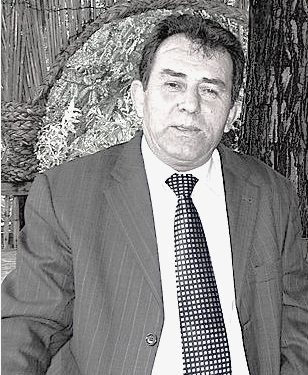
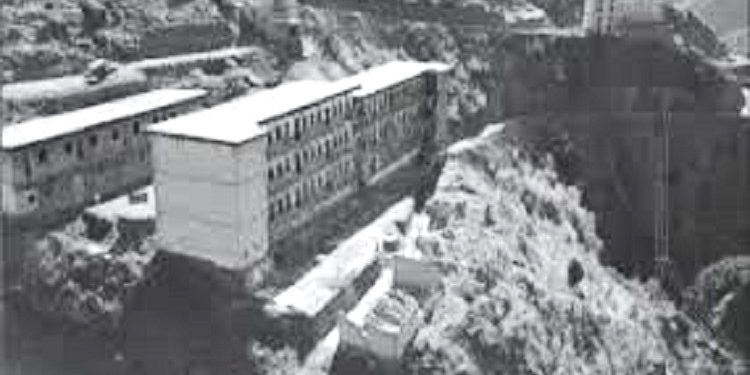

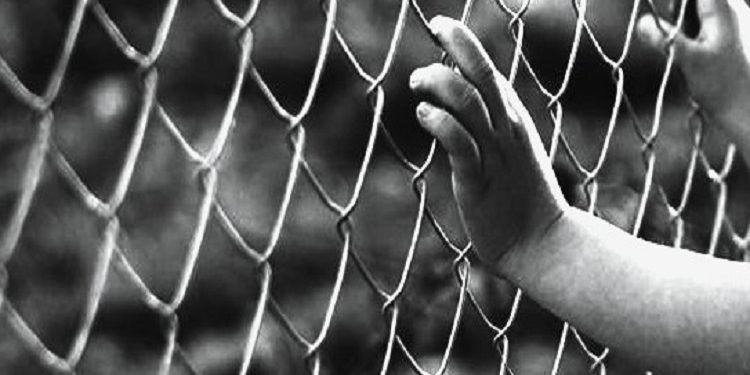
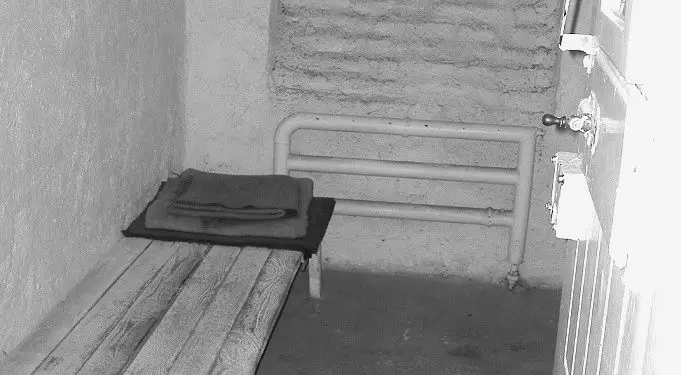
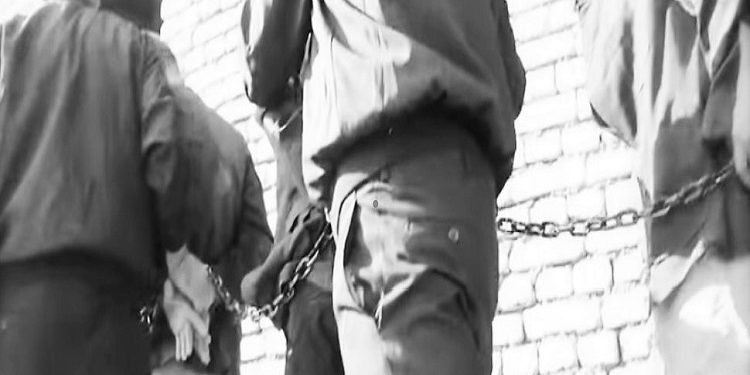
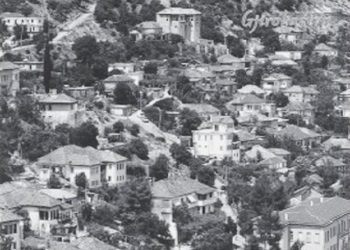
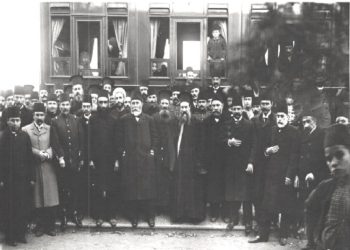
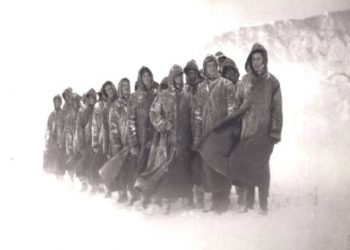

![“When the party secretary told me: ‘Why are you going to the city? Your comrades are harvesting wheat in the [voluntary] action, where the Party and Comrade Enver call them, while you wander about; they are fighting in Vietnam,’ I…”/ Reflections of the writer from Vlora.](https://memorie.al/wp-content/uploads/2025/06/admin-ajax-4-350x250.jpg)

![“When we were standing in the public garden near the Durrës port, one of the ‘sampistët’ (security/police forces) fired his ‘Kalash’ [Kalashnikov rifle] at the head of the boy from Librazhd, and the blood instantly burst out…” / The rare testimony of Sofika Prifti Cara](https://memorie.al/wp-content/uploads/2024/06/admin-ajax-1-2-75x75.jpg)